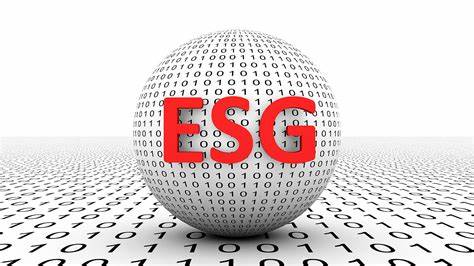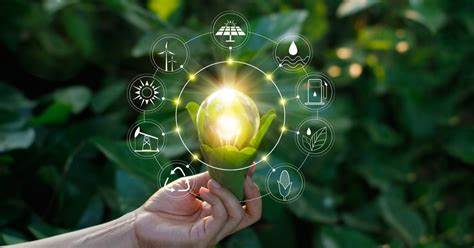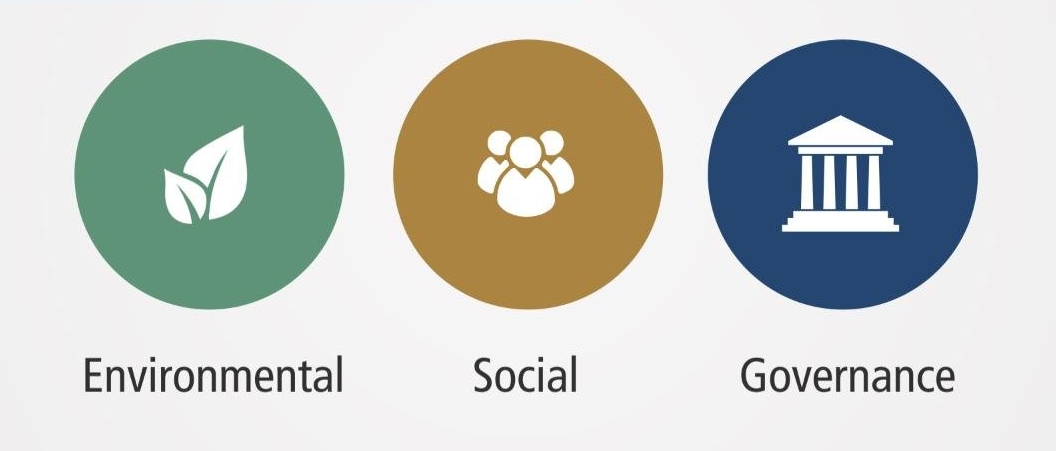ESG is a management approach to sustainable development
2020-06-29GoldenBeeGoldenBee0

Recently, Sina Finance ESG Channel had a conversation on topics of Environmental, Social and Governance (ESG) and sustainable development with Yu Zhihong, President and Editor-in-Chief of China Sustainability Tribune.
Q|Sina Finance
A|Yu Zhihong
Q: Mr. Yu, it is a great pleasure to have you in the interview today. In view that you are an authoritative sustainability expert, would you please, first of all, talk about your idea about the concept of sustainable development? And why this concept has received more and more attention in recent years?
A: I am also delighted to share my views here. As practitioner in the field of sustainable development, I firmly believe that sustainable development is not only our concept and goal, but also our current way of acting. It represents the future, also the present.
Shortly after the publication of China WTO Tribune, the predecessor of China Sustainability Tribune, the globalization brought about the corporate social responsibility (CSR) and the sustainable development. The founding of China Sustainability Tribune has further strengthened our sense of mission and responsibility to call on more enterprises to take the path on sustainable development with our efforts.
As for the reason why the concept of sustainable development has drawn more and more attention, I think it starts from people’s “reflection and resonance”, that is, the reflection on the past development mode and the resonance of the future development direction.
Especially in the process of economic globalization, the rapid economy growth and stronger human control of nature also causes some problems, such as, the ecological environment is nevertheless deteriorating; the. The natural resources are drying up; the gap between the rich and the poor is widening; the relations between man and man, man and nature are becoming more and more disharmonious.
The connotation of sustainable development was first systematically explained by the World Commission on Environment and Development (WCED) in the Brundtland Report - Our Common Future in 1987, that is, “to pursue the development that meets the current needs of contemporary people without compromising the ability of our descendants to meet their needs”. The Report also enlightens our ignorance that resources and energy on the earth are far from meeting the needs of human development, and a change of the development mode is a must for the benefit of us and our descendants. We must take on the historical responsibility for the two major tasks, economic development and environmental protection.
In September 2015, Transforming Our World: The 2030 Agenda for Sustainable Development jointly adopted by 193 members of the United Nations united the global consensus on sustainable development. The 17 Sustainable Development Goals (SDGs) envisaged on the Agenda have become the common vision of mankind and the to-do list for the benefit of mankind and the planet.
This year is the fifth year since the Agenda officially took effect. The 2030 Agenda for Sustainable Development has received positive responses from more and more regions, different industries and organizations, and individuals throughout the world, who have conducted enormous practices to realize these goals. For example, the World Telecommunication Day (on May 17) was themed with “Connect 2030: ICTs for the Sustainable Development Goals (SDGs)”.
In China, sustainable development has been gradually upgraded to the national strategy, even in a remarkable accelerating pace. The proposal of the five development concepts of innovation, coordination, green development, openness and sharing, the building of a community with a shared future for mankind, the transition of Chinese economy from rapid growth to high-quality development, are all highly in line with the concept and the practice of sustainable development. China has also made outstanding contributions to the achievement of the SDGs by focusing on poverty reduction, ecological civilization construction, and environmental protection as well as the devotion to achieve common development with other countries through initiatives such as the Belt and Road.

Q: Recently, you wrote that “the COVID-19 pandemic not only harms the current world, but also confronts the SDGs with daunting challenges”. Dose it mean the COVID-19 pandemic (a public health crisis) is also a major test for sustainable development? In your opinion, will the focus of SDGs give way to economic recovery after the pandemic?
A: The COVID-19 pandemic has severely affected the global economy, which even becomes unprecedented financial and economic crisis. At the same time, we should also pay attention to the impact of the pandemic on society, and make efforts to reduce the threat of social crisis. The enormous economic, social and environmental threats posed by the pandemic undoubtedly bring tough challenges to the realization of SDGs which represents the future world.
The most direct impact is the postponement or cancellation of key events in the field of sustainable development, including the Second United Nations Global Sustainable Transport Conference, the COP15, and the COP26, which has no doubt lowered people’s general expectations for 2020, a key year for sustainable development.
Compared with the postponement of key events, what more disturbing is the daunting challenge posed by the pandemic to the SDGs. Recently, international organizations represented by the United Nations have evaluated the impacts of the COVID-19 pandemic in their respective fields. For example, the International Labour Organization (ILO) concluded that 81% of the world’s employed population have been subject to the complete or partial closure of the workplace due to COVID-19; the United Nations Conference on Trade and Development (UNCTAD) presented in its research report that the pandemic, though having accelerated the development of the digital economy, further exposed the digital gap among countries and societies; officials of the United Nations Children’s Fund (UNICEF) held that lockdown of cities and closures of schools make it difficult for children to receive education, psychological counseling and medical treatment. Moreover, some major global social problems have shown signs of deterioration due to the COVID-19 pandemic.
Due to the shocks of the pandemic, enterprises may take economic recovery and development as priority in the short term, focusing on business growth while neglecting environmental and social issues.
It is clear that the COVID-19 pandemic has seriously interfered with the realization of SDGs by 2030, but it has not at all reduced the importance and urgency of sustainable development issues. In fact, a growing number of enterprises have realized that the pandemic made them reflect on their past development mode and the close relations with nature and society, especially the issues highlighted in the pandemic, such as wildlife protection, closer partnerships, stimulation of research and application of new technologies, and sustainable investment. We are pleased to see that some enterprises, though facing the pandemic, continue to carry out actions in the field of sustainable development, even with more inputs than ever before, accelerating their pace to contribute to the realization of SDGs.

Q: When reading media news now, we often see ESG, CSR, SDGs, green finance, responsible investment and other vocabularies related to sustainable development. Could you please briefly introduce the relationships between them?
A: Of course. We are really happy to see that “SDGs”, “CSR” and “ESG” are getting extensive attention from media coverage and the society. It indicates that these concepts are increasingly playing their roles.
In terms of these three concepts, I’d like to quote two sentences at first:
The first sentence is the definition of “social responsibility (SR)” in the ISO 26000 Guidance on Social Responsibility:
Social responsibility refers to the responsibility of an organization for the impacts of its decisions and activities on society and the environment through transparent and ethical behavior that: contributes to sustainable development, including health and the welfare of society; takes into account the expectations of stakeholders; is in compliance with applicable law and consistent with international norms of behavior; is integrated throughout the organization and practiced in its relationships.
In this definition, if we narrow down the term “organization” to “enterprise”, the relationship between CSR and SDGs would be: the goal of CSR is to make contributions to SDGs. In this sense, CSR functions as the actions, path or solution of an enterprise in its contribution to sustainable development.
The second sentence comes from the article titled Why Should “Good Children” Fear New Regulations? | Don’t Be Frightened by the ESG Reporting Guide that I wrote in December 2015 when the Environmental, Social and Governance Reporting Guide was released by the Stock Exchange of Hong Kong Ltd. (SEHK):
Those new regulations are never aimed at restraining “good children”. For companies that have always focused on sustainable development, the Guide is just a new and more concrete information disclosure tool, and is not a big deal.
I wrote this because the framework of the Guide comes from the ISO 26000 Guidance on Social Responsibility, the GRI Sustainability Reporting Guidelines and other related documents, with only difference in its focuses on relevant issues and indicators, which are more applicable to the capital market and listed companies.
In this regard, ESG can be interpreted as the important content to measure the sustainability ability of listed companies in the capital market, and also a tool to promote the capital market to consider long-term value investment. Its core lies in building a capital market with sustainable development as its fundamental, which can be proved from the proposal and evolution of ESG.
For SDGs, or CSR, ESG, green finance, and responsible investment, we should view them as closely related to each other, even as both cause and effect. For an enterprise, valuing CSR fulfillment and managing ESG performance are both conducive to its contributions to sustainable development, and can meanwhile expands its development space with more competitiveness.

Q: The concept of ESG has received wide concerns in China in recent years. Many Chinese enterprises have begun to take initiatives to publish CSR reports and actively participated in all links of ESG. This rating system has also been recognized and positively responded to by many foreign capital management organizations inside China, achieving a relatively benign cycle. So, how does the ESG system play an active role in your opinion? What is the significance of application and promotion of this rating system in China?
A: Although there is only a dozen years since the proposal of ESG, ESG has gradually become the mainstream concept in the capital market, and ESG investment has almost become a concept in parallel with responsible investment and green finance.
Underpinning the investor’s value judgment and decision in the capital market, ESG rating is also significant to promote the sustainable development of capital market. The ESG performance tells the long-term development capability of a listed company, specifically, environmental responsibility (E) and social responsibility (S) mirror the company’s responsibility and quality, and standardized corporate governance (G) represents the solid foundation of the company’s development.
For a company itself, ESG is management approach to sustainable development. ESG specifies the sustainability issues faced by the company, and further establishes specific ESG issues and indicators based on the actual situation, requiring the company to manage and disclose these issues and indicators as reference for investors in the capital market.
With the internationalization of Chinese A shares, the MSCI index has also begun to apply ESG rating. The principles for ESG will have a substantial impact on the resource allocation of Chinese capital market. Therefore, in order to promote the sustainable development of A-share listed companies, it is necessary to propose measures to improve the companies’ ESG management, and release guides on ESG reporting to guide listed companies towards high-quality development.
Q: In view of your rich experience in the field of CSR and sustainable development, can you feel the huge transformation of China’s economic development pattern? Could you give us an example?
A: The huge transformation of a country’s development pattern can never come about overnight. Personally, I make out this huge transformation from the following three dimensions.
From the perspective of national strategy, sustainable development as a national strategy is consistent with the five development concepts of “innovation, coordination, green development, openness and sharing”, tallies with the connotation of high-quality development and stays closely aligned with the building of ecological civilization. This national strategy, featured and oriented with sustainable development, is the most important guarantee for China’s transformation of development pattern.
In terms of government policy, the government has introduced a series of policies to encourage technological innovation aimed at solving environmental and social problems, in order to impose restrictions on the industries that severely pollute ecological environment and consume a lot of natural resources, and to guide a fair and just competitive environment for market players.
As for awareness of all parties in society, sustainable development is no longer an alien term, but becoming the consensus and goal of all parties.
As a practitioner in the field of sustainable development, I have heard more and more sustainability responses;I have seen more and more sustainability actions, and I know more and more organizations in need of ESG, CSR, and SDGs consulting services. These changes indicate the drastic changes in development pattern.
Another point impressed me deeply is the worldwide recognition of China’s achievements of low-carbon economy. This is mainly reflected on the active promotion of energy production and consumption, especially on the industrialization of new energy such as photovoltaic industry and wind power industry, which not only fosters new sources of economic growth and new employment opportunities domestically, but also adapts to the world’s trend of sustainable development and enhances China’s global competitiveness.
Driving straight north from Beijing, you will see endless wind power generators and mountain-wide photovoltaic power generation systems, and I bet, you will then strongly feel the huge changes in China’s energy industry.
(The full Chinese version is written by Sina Finance, if you want to see it, please click here.)
(All the images are from the Internet)
Best Practices
- The 100-year brand — Air Liquide also has a sense of juvenile
- Beijing Public Transportation Corporation: Developing green transportation to build a harmonious and livable capital
- CGN: Building a modern factory in barren deserts and developing a new win-win cooperation model along “Belt and Road”
Upcoming Event

All the materials on the site “Source: XXX (not from this site)” have been reprinted from other media. They do not imply the agreement by the site.
All the materials with “Source: CSR-China Website” are the copyright of CSR-China Website. None of them may be used in any form or by any means without permission from CSR-China Website.
GoldenBee Official WeChat
Copyright © Csr-china.net All Right Reserved.
京ICP备19010813号










